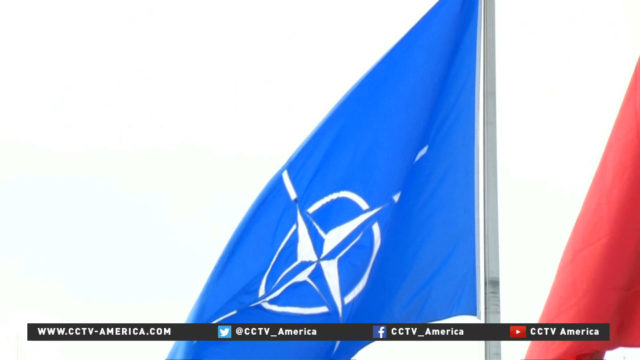Every day nearly 2,000 migrants make the dangerous journey by sea into Europe, afraid and desperate for survival.
That’s nearly 10 times the number of migrants making the crossing than a year ago. There’s now a plan to try to stem this surge and to potentially save lives in the process.
CCTV America’s Mike Walter reports.

Since the beginning of the year, the International Organization for Migration estimates that more than 70,000 migrants and refugees have made this journey.
More than 300 others died trying.
In response to the refugee and migrant crisis, NATO’s supreme allied commander announced a new mission to identify smugglers. Currently, they only know the routes migrants and refugees take: first from Syria to Turkey, then to the Greek islands in the Aegean Sea, finally to Germany or other European countries. Similar treks begin in Afghanistan, Iraq, or Eritrea.
But could NATO’s mission extend beyond the Aegean Sea?
Saudi Arabia said it’s prepared to send ground troops into Syria if NATO or the U.S.-led coalition does too, and sent aircraft to Turkey’s Incirlik air base.
Kurt Volker on the impact of NATO’s presence
NATO hopes its presence will not only make smuggling harder, but that it will eventually end human trafficking across the Aegean. How realistic is that? And how exactly will this mission work?
Kurt Volker Spoke to CCTV about the impact of NATO’s presence. Kurt Volker is the former U.S. ambassador to NATO. He’s now Executive Director of the McCain Institute for International Leadership at Arizona State University.

Security policy analyst Kamran Bokhari on the cease-fire in Syria

CCTV America’s Mike Walter spoke with security policy analyst Kamran Bokhari about the cease-fire in Syria, why hospitals and schools are being targeted, and Tukey’s accusations that Russia has committed war crimes. Bokhari is a Fellow with the Program on Extremism at George Washington University, and he’s also a senior lecturer at the Security and Policy Institute at the University of Ottawa.
 CGTN America
CGTN America

